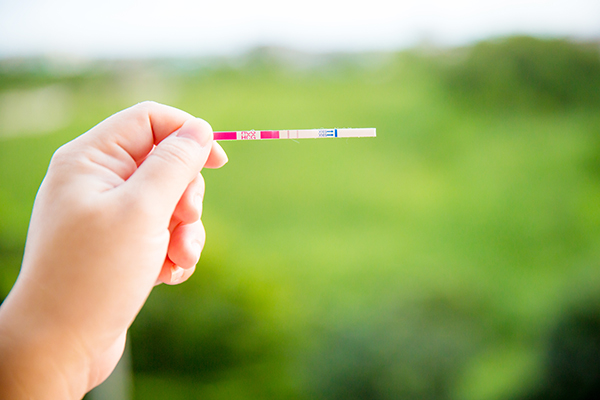It is very frustrating and depressing for a couple when there are issues of infertility. Often, this is accompanied by mutual blaming, rift in relationships, and pressure from family and society. It is certainly a major issue for women with PCOS due to certain ovarian cyst symptoms.
Women who have PCOS and aspiring to be mothers may need medical management from a reproductive endocrinologist and a gynecologist in order to get pregnant and to avoid complications post pregnancy. This is because of the close relation between PCOS and pregnancy.
Many women with recurrent ovarian cyst symptoms and PCOS face fertility problems. They have difficulty in getting pregnant and are prone to some complications after delivery. Complex manifestations of polycystic ovarian syndrome lead to infertility and excess male hormones. That is why many women with PCOS face difficulties in carrying their pregnancy to a full term.
PCOS and pregnancy – What to know?
What is PCOS?
PCOS or Polycystic Ovarian Syndrome is a common hormonal and endocrine disorder that has no cure. It manifests in the form of multiple symptoms and can lead to numerous complications. In PCOS, women have higher levels of male hormone testosterone.
Although male and female hormones are present in both genders, excessive male hormones in women can cause multiple health problems including:
- Irregular, or lack of menstrual periods
- Pelvic pain and cramps
- Excessive facial hair
- Weight problems
- Infertility
- High cholesterol
- Increased risk of type 2 and gestational diabetes (diabetes that occurs during pregnancy)
- Increased risk of heart diseases.
How does PCOS affect pregnancy?
Irregular periods:
One of the major ovarian cyst symptoms is irregular periods. Women with PCOS have difficulty having a normal menstrual cycle due to the hormonal imbalances that occur in this condition.
Imbalances in the levels of luteinizing hormone and follicle-stimulating hormone (produced in the pituitary glands) cause imbalances in the levels of progesterone and estrogen. This leads to a disruption in the actions of progesterone and estrogen when the ovaries produce eggs. Often, eggs are not released from the ovaries. This is one of the causes for a difficulty in conceiving.
Polycystic ovaries and anovulation:
Another cause for a difficulty in conceiving is the formation of polycystic ovaries. These cysts are fluid-filled sacs and are formed when eggs are not released from the ovaries for a prolonged period of time. These cysts remain on the ovaries and lead to decreased fertility.
In PCOS, the ovaries of women have chronic inflammation. Moreover, ovaries become hypersensitive and hyperresponsive to hormones secreted in the pituitary glands. This makes the ovaries release more androgens and leads to a condition called anovulatory infertility. Anovulation occurs when ovulation does not take place in the monthly cycles.
Complications associated with PCOS and pregnancy
Though women with PCOS can get pregnant, the chances are reduced due to decreased fertility. However, apart from difficulty in conceiving, the relationship between PCOS and pregnancy extends. Since PCOS manifests in various forms causing insulin resistance, and high cholesterol levels, the risks of complications in PCOS and pregnancy are high.
Complications in PCOS and Pregnancy
- Increased risk of miscarriage
- Early pregnancy loss
- Increased risk of gestational diabetes
- Pregnancy-related hypertension disorders
- Preterm delivery
- Giving birth to babies of abnormal size for gestational age
Since most of women affected by PCOS are obese, insulin resistance is higher and the chances of gestational diabetes are higher. Due to elevated levels of luteinizing hormone, the chances of miscarriage are high.
PCOS and Pregnancy Chances – PCOS Fertility Treatments
In PCOS, having pregnancy and successfully conceiving requires medical intervention of a reproductive endocrinologist. A variety of medical and lifestyle treatments are available for successfully conceiving and reducing pregnancy-related complications. Reproductive endocrinologists and gynecologists provide an appropriate treatment plan after a thorough evaluation.
The most common medical treatment for anovulatory infertility used in PCOS and pregnancy patients is taking fertility drugs. These treatments focus on ovulation induction (done with estrogen receptor modulator), and ovarian stimulation (done with gonadotropins)
Other fertility treatment plans include:
- Laparoscopic ovarian surgery
- In vitro fertilization
- In some cases, prescription of Metformin ( a diabetes medication)
Lifestyle interventions for PCOS and pregnancy
Lifestyle modifications including reduction of weight, folic acid supplementation, and modification of diet have positive effects when it comes to conceiving and reducing the complications associated with PCOS and pregnancy.
Weight reduction:
Many women with PCOS are obese and carry an increased risk of complications like gestational diabetes, preterm births, miscarriage, and hypertensive disorders.
A reduction of about 5 to 10% of body weight over a period of six months can improve the rates of ovulation. Weight reduction also assists in improving metabolic and reproductive health.
Diet Modification with Polycystic Ovarian Syndrome Diet
Once a woman diagnosed with PCOS becomes pregnant, there are scores of dietary concerns that needs attention. Hence, it needs proper management with the help of a reproductive endocrinologist and dietician.
In PCOS and pregnancy, the risk of pregnancy-related complications are high. There are many potential health risks for the developing fetus as well as the pregnant woman’s health condition.
Therefore, it’s important that a woman who is successful in getting pregnant with PCOS is aware of the potential risks in order to ensure adherence to the diet regimen.
To maintain a healthier diet plan, it’s best to break the meals into smaller portions and eat more frequently throughout the day. This helps to regulate insulin levels better, and will help to keep hunger away.
Polycystic ovarian syndrome diet should include foods with low glycemic index. This is because of insulin resistance that causes insulin levels and blood sugar levels to rise abnormally. Intake of protein, carbohydrates, fat, and fiber should be regulated along with the intake of salt.
PCOS and pregnancy – How to get pregnant and avoid complications
Here is a list of things that can help women increase their chances of conceiving and have a complication-free pregnancy.
- Preconception counseling depending upon the age of the woman
- Reduction of weight and attaining the desired body mass index.
- Restricted use of contraceptives (even before planning for pregnancy)
- Diet modification with a PCOS diet plan
- Regular exercise (150 minutes per week)
- Regular ovulation tests to increase chances of conceiving
- Folic acid supplementation
- Diagnostic tests for gestational diabetes and hypertensive disorders
- Medication therapy during pregnancy to avoid congenital defects














